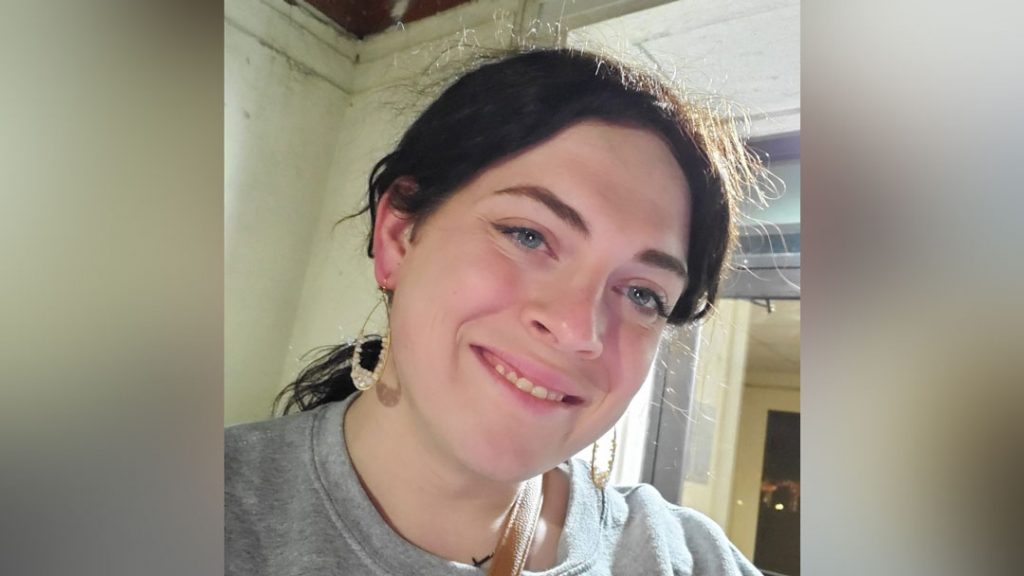So you are scrolling through your favorite social media feed and start seeing posts here and there with a pink, blue and white flag with mentions of transgender people on it.
“Huh. That’s weird,” you say to yourself, but you brush it off and go to get a coffee before work.
At the coffee shop, you notice that same flag on some people’s shirts and on pins on the chests of others.
“OK, now this is getting ridiculous,” you think.
Then at work, you ask your coworker if it was some new trend or something you might have missed. They tell you that it’s Transgender Day of Visibility and that people are showing their support to all transgender persons. An audible groan escapes from you and you think, “Why does everyone these days get their own day just for existing? After all, there is no Heterosexual Day” — that you know of — “and why is this even necessary?”
Well, I am glad you asked!
My name is Erica Smith, and today is a day about me and all my peers struggling to get by for being transgender. I will be your lovely and bubbly tour guide to the world of Transgender Day of Visibility, which occurs annually on March 31. But watch your step — you might get oppression and discrimination on your shoe.
Born and raised in Tunkhannock, where there are more deer than people (but the people are all fantastic), I am a 28-years-old disabled Army veteran of seven years, holding the rank of sergeant as a combat medic (68W for you fellow grunts; I also was a 19D or a Cav Scout). At Marywood University, I graduated cum laude with honors citations, earning dual bachelor’s degrees in physician assistant studies and philosophy with minors in history and astronomy and a certificate in bioethics. I have written two thesis papers on ethical treatment of transgender children and adolescents, which I hope to publish, and am pursuing a master’s degree in clinical mental health counseling.
Outside of the classroom — and when I’m not busy being a dog mom to my amazing cattle dog/German shepard, Nina — I have spoken at several events related to transgender and LGBTQ awareness, volunteer as a firefighter and emergency medical technician, and am a CPR instructor who hosts free classes for college students. I also advocate for students with autism, which I have. Oh, and I also a transwoman — but you can just call me Erica.
Whether you are new to the whole transgender topic or a super nerd about it like I am, I wanted to talk a little bit about why Transgender Day of Visibility is so important and absolutely needed. Transgender people have a difficult road ahead of them because the world likes to use nice, neat categories to communicate with and understand each other, but transgender people just don’t seem to fit into one.
“Trans” means “in between,” so “transgender” means “going from one gender to another.” (Society likes to use “gender,” “sex” and “sexuality” interchangeably, but they are not, and it can get really messy if they are. Just understand that there are differences, and it’s important to at least recognize that a difference exists.) So, a transwoman like myself is someone who was born with male genitals and classified by the doctor at birth as male. A transmale is the opposite, someone born with female genitals at birth. Then there is “intersex,” a blanket term for anyone in between. However, a person is much more than the sum of his or her reproductive parts.
I did not start my transition medically — meaning hormone therapy — until March 18, 2019 (which is also my mom’s birthday — happy birthday, Mom!). So, if I “knew” who I was this whole time, then why did it take me almost 30 years to do something about it?
Well, a lot of stereotypes about transgender people exist, and they play a role in creating fear around someone transgender. A transgender person is not someone who is very effeminate as a child. It’s not someone who plays with Barbies, or someone who wants to wear dresses or anything like that. Stereotypes liked these give someone who has never met transgender people a basis for developing biased opinions about them, and it leads to many of the issues we have today.
When I was a kid in the 1990s, around 4 or 5, I had thoughts like, “Why do I want to be with the girls?” and “Why do I feel more comfortable around them than I do the guys?” And then I learned that a transsexual (an outdated term used to describe us transgender people) was an old guy who was a pedophile and would put on a dress to seduce young people, or was an effeminate homosexual male who adopted the role of a female to justify a sexual preferences. I found out that these transsexuals were immoral, dangerous people who would go around and pretend to be women and hurt people — and that they also claimed to have thoughts similar to my own.
I felt terrified, and I couldn’t tell anyone because I didn’t want them to think that I was a bad person or that I wanted to hurt them. So I kept it a secret, determined that no one could know my thoughts. I had to filter everything from my voice to the way my hands moved to how I walked, and even what my likes and dislikes were. I couldn’t let anyone get close enough to see the “evil” demon inside of me. This started my decades-long year journey of learning how to hate myself and to do everything possible to cure me of this “illness.”
Friends and family still tell me that they “had no idea” and “didn’t expect me to be transgender.” When I transitioned, others asked me if I was pulling a joke on them, and some even claimed I was sick and needed help. No one could look past the transgender part and see how much I was hurting — and had been hurting — on the inside for so many years. This is the kind of hurt that can’t be healed by Tylenol or alcohol (though I tried) but instead existed so far deep down inside me that when it was finally unleased, I did the one thing I never expected — I attempted suicide.
Thankfully, I got help, spending about a week in a hospital mental health ward in November 2019, six months into my transition and three years into therapy with an amazing counselor. I remember sitting in the emergency room when the mental health delegate came in to talk to me, and she asked me why I wanted to kill myself. I just closed my eyes and tried to figure out how to explain it. In this moment, all the feelings from the last 20-some years came rushing forward, and I cried harder than I ever had.
At one point through the sobs, I cried out, “I hate myself. I deserve to die,” and when I realized what I had said, it sank in that all those years, those stereotypes, the negative media and the influence from others had taught me not to love this part of me and made me believe I was a menace who was better off dead.
So why do we need a Transgender Day of Visibility? On this one day, we can come out as a unified group and show others struggling just like we did that the stereotypes are not true. We need this day, too, because for the other 364 days of the year, it is NOT SAFE to be transgender.
Last year, 24 transwomen were murdered just for being transgender. The amount of fear and misinformation in our world and our culture is staggering. I was so terrified to use the women’s bathroom at school (even though it allowed me to) that for the first six months of my transition, I would run across campus to my dorm room and use my private bathroom instead. I was so afraid that if I used the school facilities, someone would feel uncomfortable or report me, and that I then would have turned into that stereotypical person I had always feared being. All I had to do was pee, and I was even afraid to do that.
A few weeks ago, it took me around six hours to cash a check, because everyone who had looked at my ID — which had my old, male picture — thought I was trying to cash someone else’s check. When I finally found a place that would cash it, the woman waiting on me looked at me, then at my ID and started laughing. “Oh yeah, of course that’s you,” she said. “I can see the resemblance. It’s not hard to spot a tranny.” (And yes, “tranny” is a derogatory term.) It takes up to 90 days to legally change your name, and I am sorry, but I don’t look like an Eric anymore. So, I have a driver’s license with my old picture and my legal name — a male name — and everywhere I go people think it is fake.
I have a right to be able to seek medical care and also be treated as a female in most ways. As a medical professional, I understand that biologically I can’t be expected to be treated the same way because it would be a danger to my own health; but as a woman who has breasts, I deserve the right to cover myself up and have another woman present when being inspected for my chest. Once, my doctor examined my chest for a bruised rib and had to unbutton my gown, but he left it exposed for about 10 minutes while talking to me and the nurse. My breasts remained exposed without the curtain closed, and when I mentioned it to the doctor, it caught him off guard and he apologized. His actions were not just poor bedside manner; they were based on him seeing me as male even though my name and nametag showed me to be female.
We all know of transgender celebrities, but so often they don’t talk about everyday oppression and the really crappy parts about being transgender. How many people have to figure out when they have to tell someone on a date what their gender identity is? Why am I expected to go around telling everyone that I am transgender “for their safety”? What about my safety? How many people have to fear being murdered for just trying to be themselves?
Despite all this, the world has come a long way since I was a kid and continues to get better. Yet in some ways, we overcompensate for it. Am I proud I am transgender? Yes. Am I proud of my struggle? Yes. But is being transgender the only thing about me? Absolutely not.
We get so caught up in being politically correct and polite that we accidentally outcast those of use transgender people just trying to live a “normal” life. So many people have been incredibly supportive and understanding of me, but they also are so concerned about offending me or asking me something inappropriate that they accidentally exclude me. Conversations are superficial, and many feel unsure how to treat you, so they leave you alone. It equates to a very lonely world. Instead I would rather they ask me about being transgender or what my journey was like or how it feels now compared to how it felt before. It’s about bridging the gap between acceptance and understanding.
Transgender Day of Visibility aims remind everyone and show the world that we are not on some far-off land called California or in some bar dressed as an over-sexualized woman or man.
We are here, and we are people. We have basic human needs like everyone else. We eat, breathe, use the restroom and just want to be able to live our lives successfully. I need to cash my check to pay my bills. I need to be able to file legal paperwork and drive with a driver’s license. I need to be able to go to the hospital and be treated for my illness and not be judged or humiliated for being transgender.
There is so much people don’t know about what being transgender is like, and it’s hard for them to learn because there is so much fear out there. The struggles we have are numerous and are in the places you least expect them. They are the smallest things that have nothing to do with being given the wrong pronouns.
I spent 27 years of my life not thinking I was human, looking at the world as if I didn’t belong and feeling disconnected to everyone. When I transitioned, that feeling went away. I could connect with people, and I could have conversations, and I could feel emotions instead of being numb all the time. Just imagine feeling so good and so relieved about something that you are willing to risk being murdered or discriminated against daily for it.
I am not telling ANYONE what to believe, who to accept or how to respond to someone who is transgender. Just like I am allowed to have my own beliefs, so is everyone else. For those who do not believe in people who are transgender or those who do not agree with, it’s OK to have those view. It would be just as wrong for me to require you to believe or accept something just like it was wrong for me to be told that being transgender was wrong and immoral. I would wish, though, for an opportunity for you to challenge your beliefs and try to see why you believe those things.
We have reached the end of our tour, and I hope you enjoyed the dive in a very deep pool of topics and discussion (honey, we haven’t even started yet). If there are ANY questions, comments, opinions or views that YOU want to share please email me, and I will do my best to answer them Alternatively, you can find me on Facebook as Erica Smith, or if you see me around, stop me and say hi. If you want to leave a line of encouragement, go for it, but I would rather you find someone else you may know who is transgender or reach out to someone you may not know and offer that to them instead.
I encourage anyone of any viewpoint to feel free to talk. The only way we are going to fight this problem is by opening a line of communication and having a discussion.
This is my first blog post, and I hope to discuss a large number of topics featuring not only LGBTQ issues but also social and cultural discussions. Thank you for hearing me out and giving me a voice!

A Tunkhannock native, Erica Smith is a 28-year-old disabled veteran, dog mom, transgender woman and graduate of Marywood University, where she earned dual bachelor’s degrees in philosophy and physician assistant studies with minors in history, astronomy and bioethics plus an honors citation. She is a feminist philosopher and a bioethicist (certificate level) who is pursuing a master’s degree in clinical mental health counseling at Marywood and has written two graduate-level theses, “Ethical Medical Treatment for Children and Adolescents with Gender Dysphoria” and “An Ethical Analysis of the Mental Healthcare System Treatment of Gender Dysphoric Patients.” As an advocate for LGBTQIA++ people in Northeast Pennsylvania, she has spoken at events and tries to educate and start conversations on the topic. Additionally, Smith is a volunteer firefighter/EMT and loves reading, playing with her dog, playing video games, building computers, drawing, journaling and spending time with her Christian women’s group, Delight. Contact her at ssgsmith51@gmail.com.




